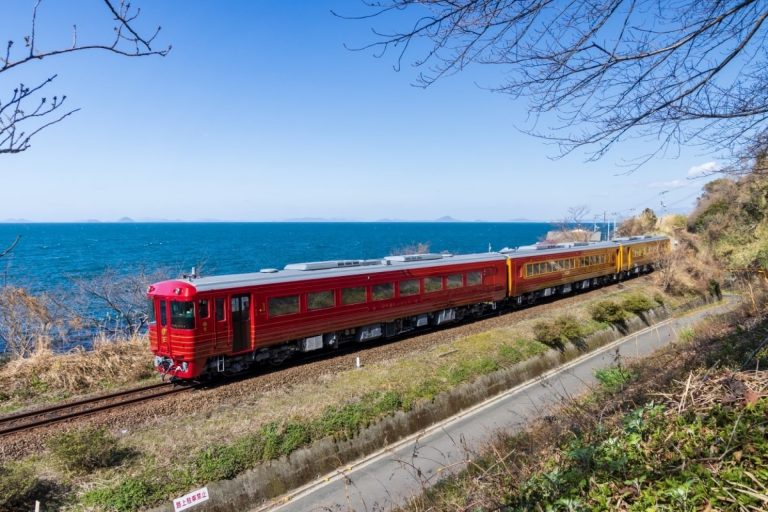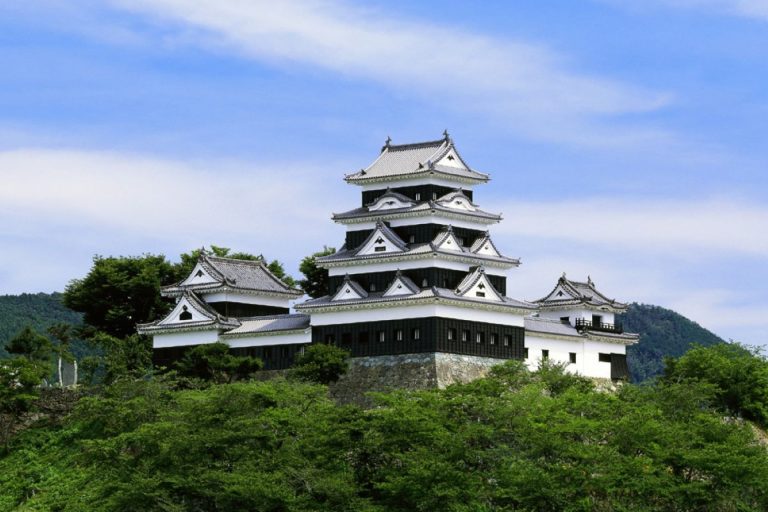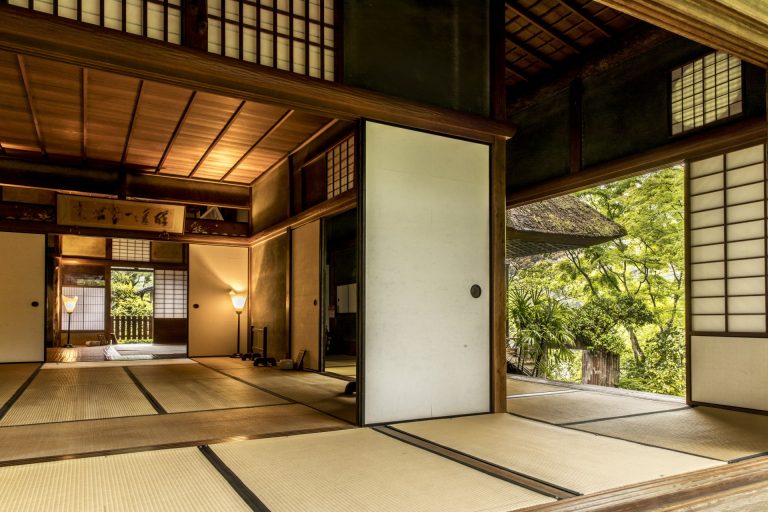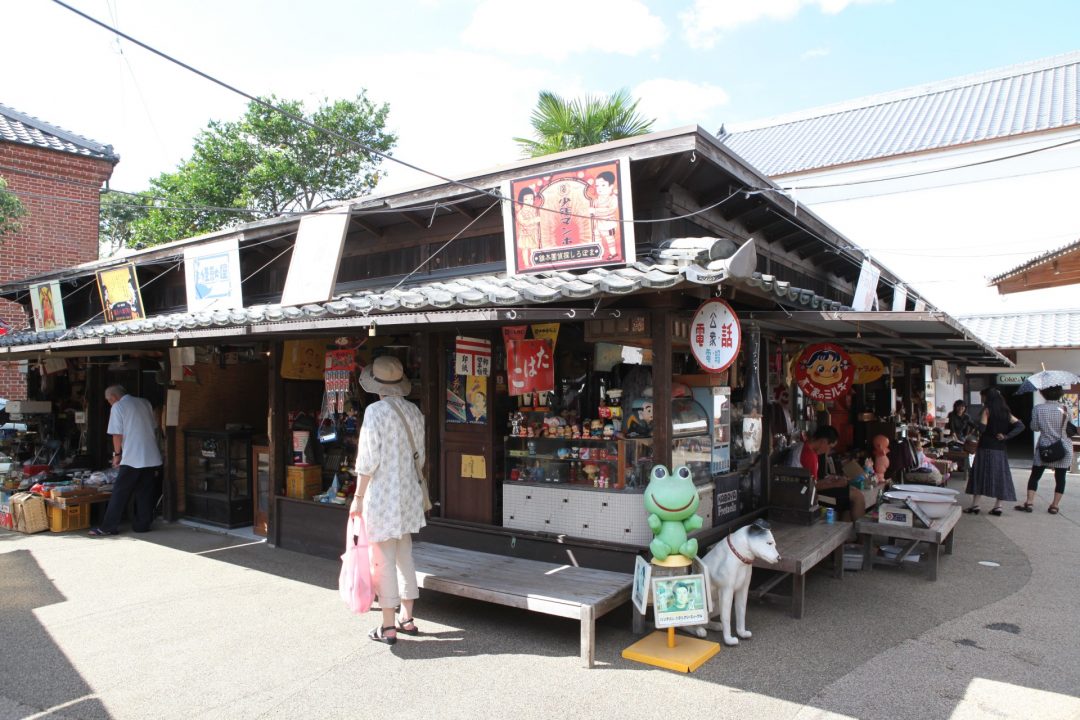
- TOP
- Interests
- Food & Shopping
- Shopping street
- Pokopen Yokocho / Omoide Soko (Pokopen Alley / Storehouse of Memories)
Pokopen Yokocho / Omoide Soko (Pokopen Alley / Storehouse of Memories)
Visit a bustling Japanese side street filled with nostalgia from 70 years ago
- Closest station
JR Iyo-Ozu Station
- Access
Around 20 minutes’ walk from Iyo-Ozu Station, JR Yosan Line.
- Location
103 Ozu, Ozu-shi, Ehime
- Opening hours
Pokopen Yokocho: 10:00–15:30 on Sundays
*Between December and March, only open on the third Sunday of each month. (There are also some temporary openings and closings. Please check the website for details.)Omoide Soko: 9:30–16:30 (Last admission: 16:00)
- Dates closed
Pokopen Yokocho: Monday-Saturday
Omoide Soko: December 29-31,one day in February
- Admission
Omoide Soko: Adult 200 yen, Child 100 yen
Great Stuff to See and Do!
17 unique shops selling Chinese noodles, Japanese snacks, antiques, and more
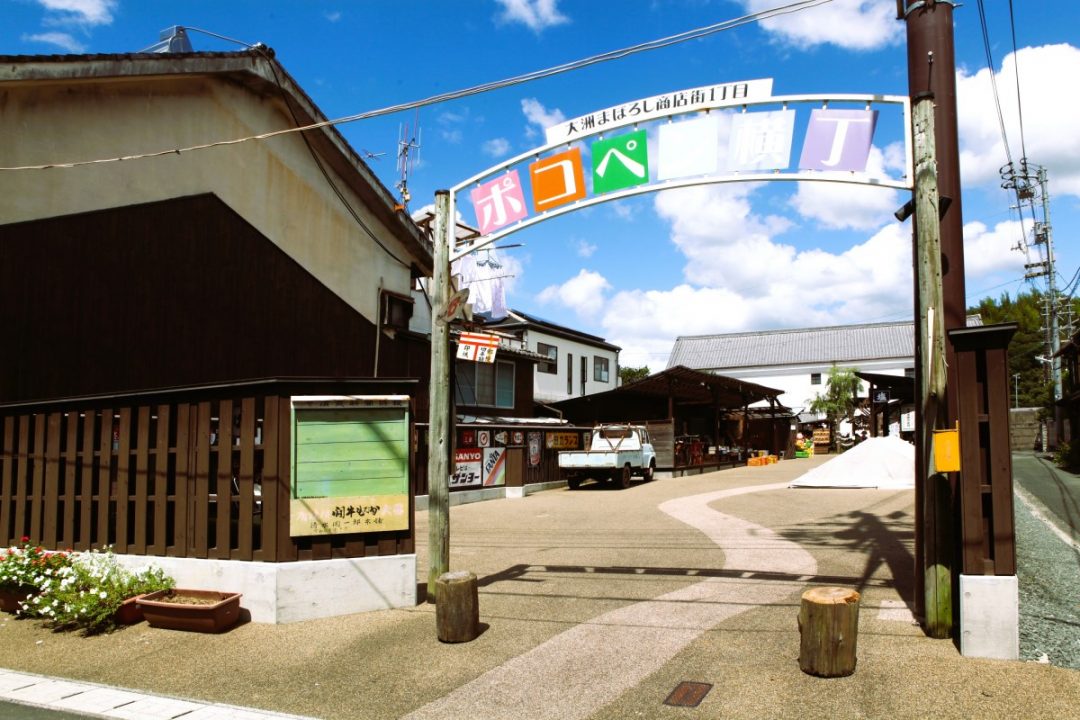
In Japanese, yokocho most directly means “side street” but also commonly refers to alleyways lined with small restaurants, bars, and shops. Once a more common sight dotting cities across Japan, yokocho created a unique environment that fostered close contact between the local people.
The retro feel of Pokopen Yokocho recreates the nostalgic atmosphere of these areas as they were around 70 years ago.
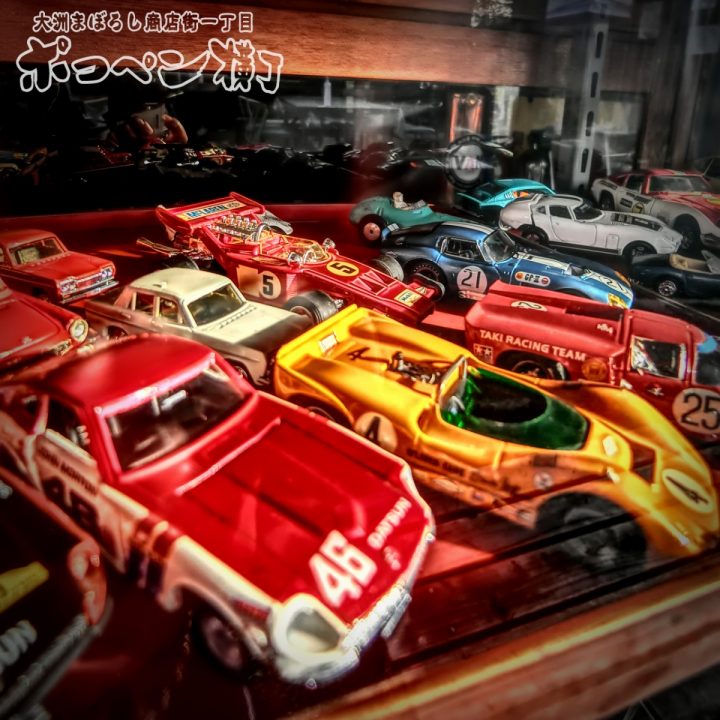
Pokopen Yokocho forms a small shopping district lined with 17 unique stores. These include food stalls where you can enjoy popular dishes like homemade Chinese-style noodles and sweet and soft croquettes, as well as stores that specialize in nostalgic toys from the Showa period (1926-1989), Japanese snacks, antiques, and other items.
Every so often, live music performances are held on a special stage that lets you enjoy local bands performing various genres of music, from the surf rock of The Ventures to Japanese taiko drumming.
A retro goods museum that recreates the atmosphere of a classic yokocho
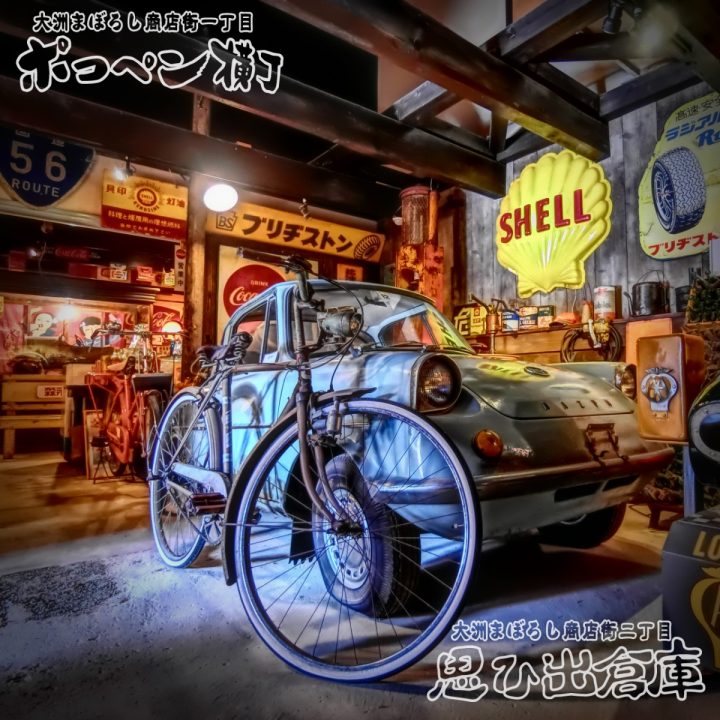
The Omoide Soko (Storehouse of Memories) is a museum located at the end of Pokopen Yokocho that recreates the nostalgic scenery associated with the lively side street and alleyway areas of the 1950s to 1960s.
Inside the museum’s eye-catching white plaster exterior, there are reproductions of a drugstore, a police box, a tobacco shop, and a general store. Visitors are surprised and delighted at the retro goods found throughout the building, such as enameled signboards, toys, and three-wheeled cars.
Behind the general store is a Japanese-style living room that faithfully recreates the way of life of the times, with tatami mats, a low table, and a CRT television, capturing the quintessential scene of Japanese life from the mid-twentieth century.
Stepping directly into it is sure to make you feel like you have travelled back in time. It’s the perfect place to take a memorable photo!

